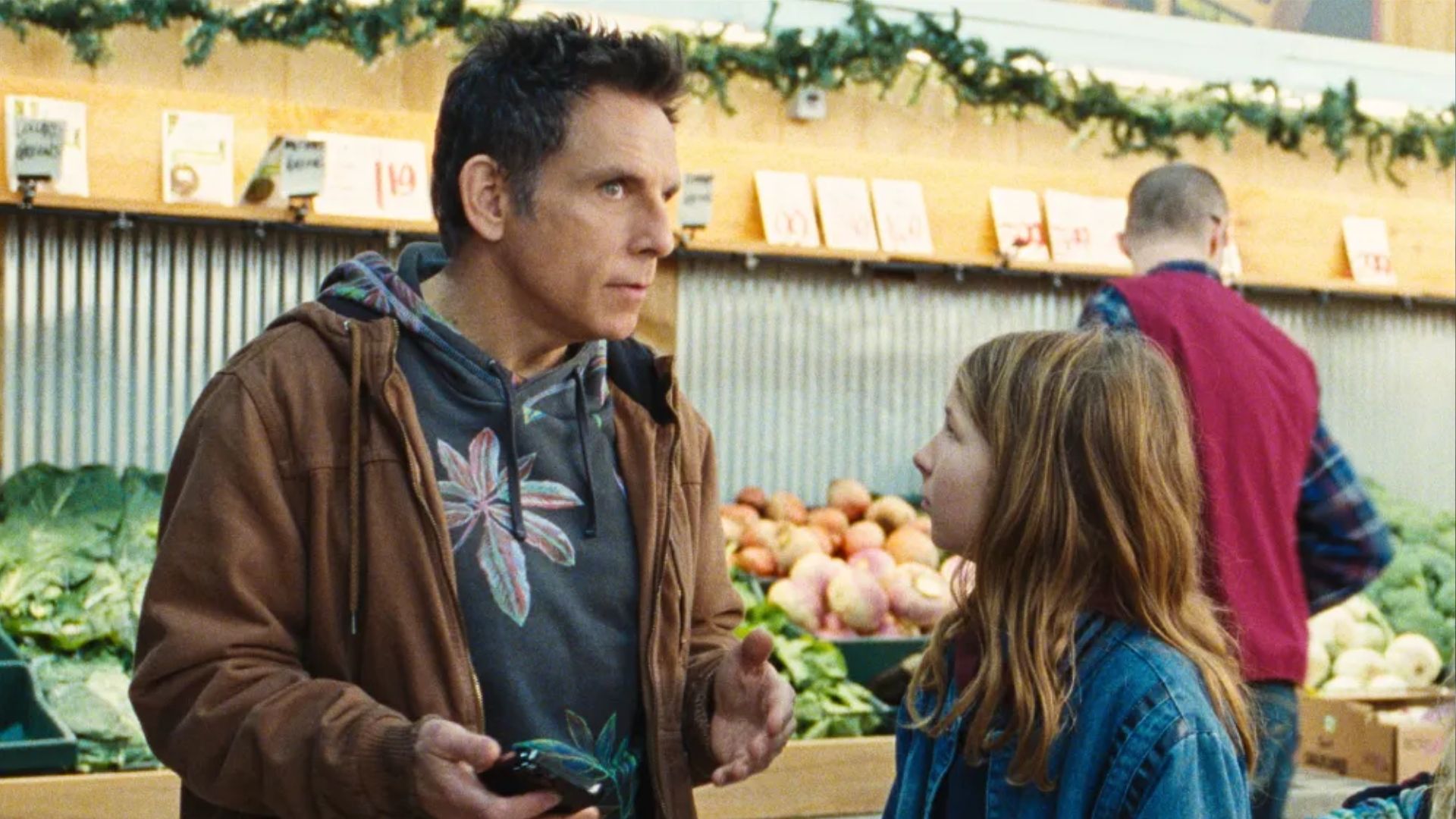As we learned from the 1999 Adam Sandler-fronted Big Daddythere is always a market for stories of unsuspecting adults reluctantly becoming first-time parents or caregivers out of the blue and coming to a heartwarming epiphany. It’s the kind of story Hollywood has told for over a century, from Charlie Chaplin’s The Kid to the five film adaptations Silas Marner made before 1923 — a man grows by caring for a child. Hell, Michael Keaton’s about to do it in the upcoming Goodrich. Director David Gordon Green’s new film, Nutcrackersattempts to tap into the same emotions as those films and might feel like a homecoming from his first full-length feature, 2000’s George Washington. With that in consideration, the right ingredients are in place.
Nutcrackers takes place during Christmastime, and has a more than capable lead in Ben Stiller (in his first lead role since 2017’s The Meyerowitz Stories). It even has a funny group of kids who say the darndest things and collectively drive the story’s emotional center home. So why is it so mediocre?
Nutcrackers Sticks to Tried and True Tropes
The problem with Nutcrackers is just how comfortable it is sticking to the script of familiar story beatsso much that you see everything coming with all the loose ends resolved as expected. A slight deviation from the formula would have at least drawn the audience into a suspension of disbelief that perhaps a choice they hadn’t seen would have been made. Instead, the same realizations and lessons come to fruition, which doesn’t provide these likable characters any options outside the usual tropes.
Michael (Stiller) has places to go and deals to close — particularly a significant real estate one for his company back in Chicago. Before he can do that, Michael and his bright yellow Porsche have to head to a rural farm in the Ohio countryside to close out some legal affairs for his recently deceased sister, Janet. Michael believes this will be a quick process where he’ll sign some papers and be on his city-slicker way, but there’s the matter of his late sister’s four young boys: 12-year-old Justice (Homer Janson) 10-year-old Junior (Ulysses Janson), and eight-year-old twins Samuel and Simon (Atlas and Arlo Janson), all of whom are now without a guardian.
Welcome to the Farmhouse
If Michael needed more responsibility, he came to the right place. The boys somehow find a way to blow up a local carnival, and upon arrival, Michael is handed the bill. On top of that, the boys’ caseworker, Gretchen (Linda Cardellini), lets Michael know the main foster family has fallen through, and he will have to play the corporate-styled Uncle Buck until this gets resolved. From the beginning, this sets a tone for the city-slicker-versus-country-living theme.
The house is crawling with animals, including chickens, snakes, and others, that should not be prancing around the living room. There’s no semblance of food they can eat together (just some cheese balls and cereal with various condiments). Michael has his work cut out for him, with nephews who want to steal his Porsche and try to drive it on top of a makeshift ramp. Hints at a rival executive waiting to take his deal back home aren’t making anything easier for Michael either.
Within all the mess and calamity, writer Leland Douglas does work in some palpable feelings of grief that the boys get to show and share. Stiller’s character also investigates these feelings; you find out Michael and his late sister had been somewhat estranged before her untimely passing. The shared feelings of loss (when given time for exploration) work because you see Michael and the kids’ relationship evolve. They bond through humorous set pieces where the plot of Rambo gets into a bedtime story, and a day of sex-ed homeschooling turns into a funny running gag.
Ultimately, though, Nutcrackers elects to serve its ultimate master — Michael, who has to choose between his luxurious city life with a promise of promotion and the simplicity of rural living with his nephews. Cardellini’s character doubles as a predictable potential love interest to Michael and his mode of conscience, reminding him that he’ll forever regret choosing his capitalistic endeavors over family.
Resting on the Laurels of the Past
When Nutcrackers enters the latter half of its story, the film has already decided where it wants to go, removing much of the tension concerning Michael’s possible decision. Despite the side-quest of courting potential foster parents within the small neighborhood and the inevitable conclusion of transforming Tchaikovsky’s The Nutcracker into something of a tribute, all of it feels rushed to get the audience’s heart.
Transforming four somewhat feral kids with a penchant for mayhem and getting to the root of why they are that way is a safe formula. But that’s not entirely all Nutcrackers could have had going for it. The sad part about that is, if the film took more time to flesh out some of the more substantial things it wanted to say, Nutcrackers could’ve been something special. If Stiller’s character was a little more complicated (like in his tiny gem, Greenberg), and the film a little less eager to please the baseline of the mainstream, we might have a feel-good Christmas miracle on our hands. If anything, it’s more of the ghosts of Christmas dramedies past.
Nutcrackers was the opening film of the 2024 Toronto International Film Festivaland you can find more information here. It is now set to have a streaming release on Hulu in December, but watch this space for further updates.
Source link
#Nutcrackers #Review #Ben #Stillers #FeelGood #Family #Comedy #Christmas #Miracle

